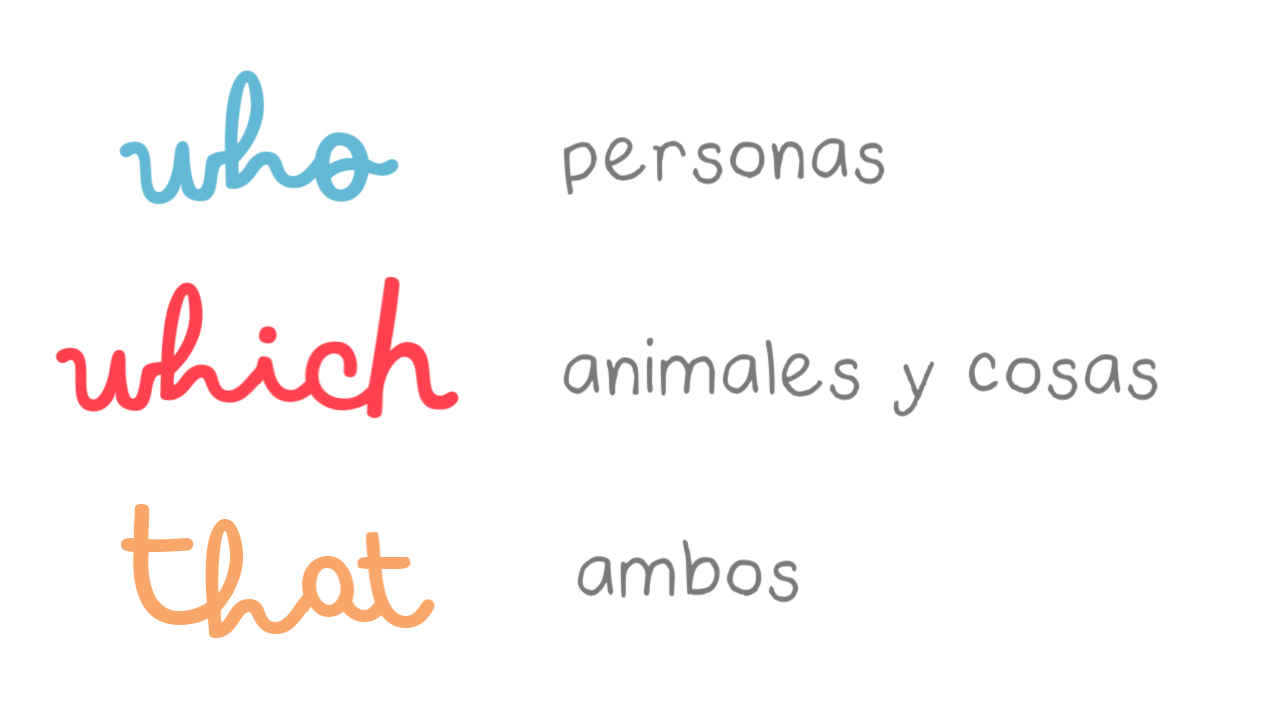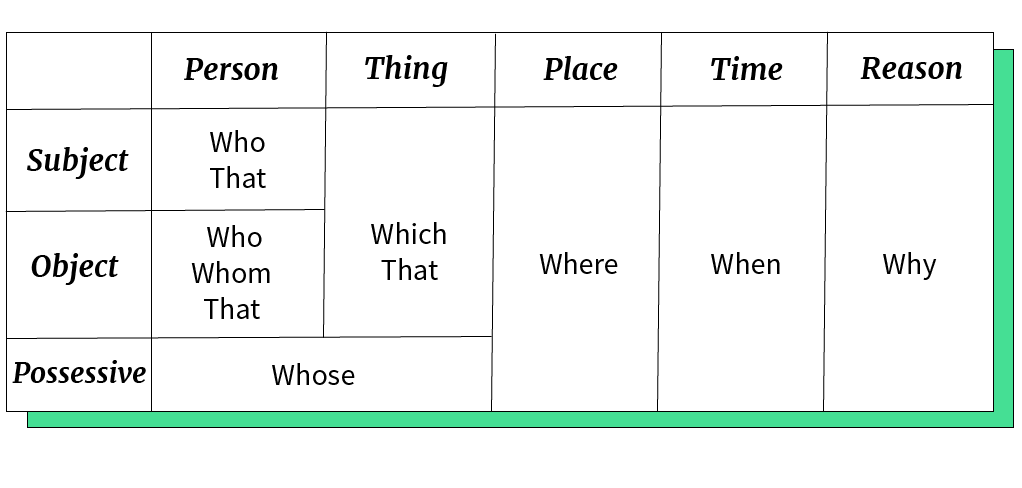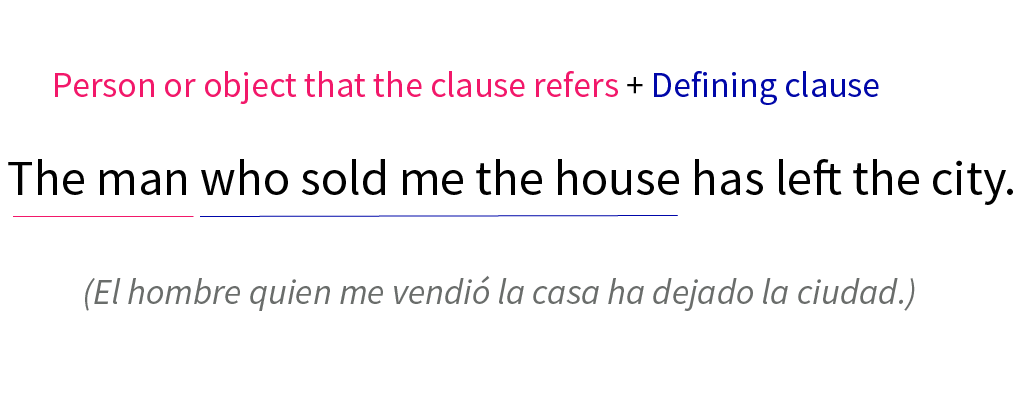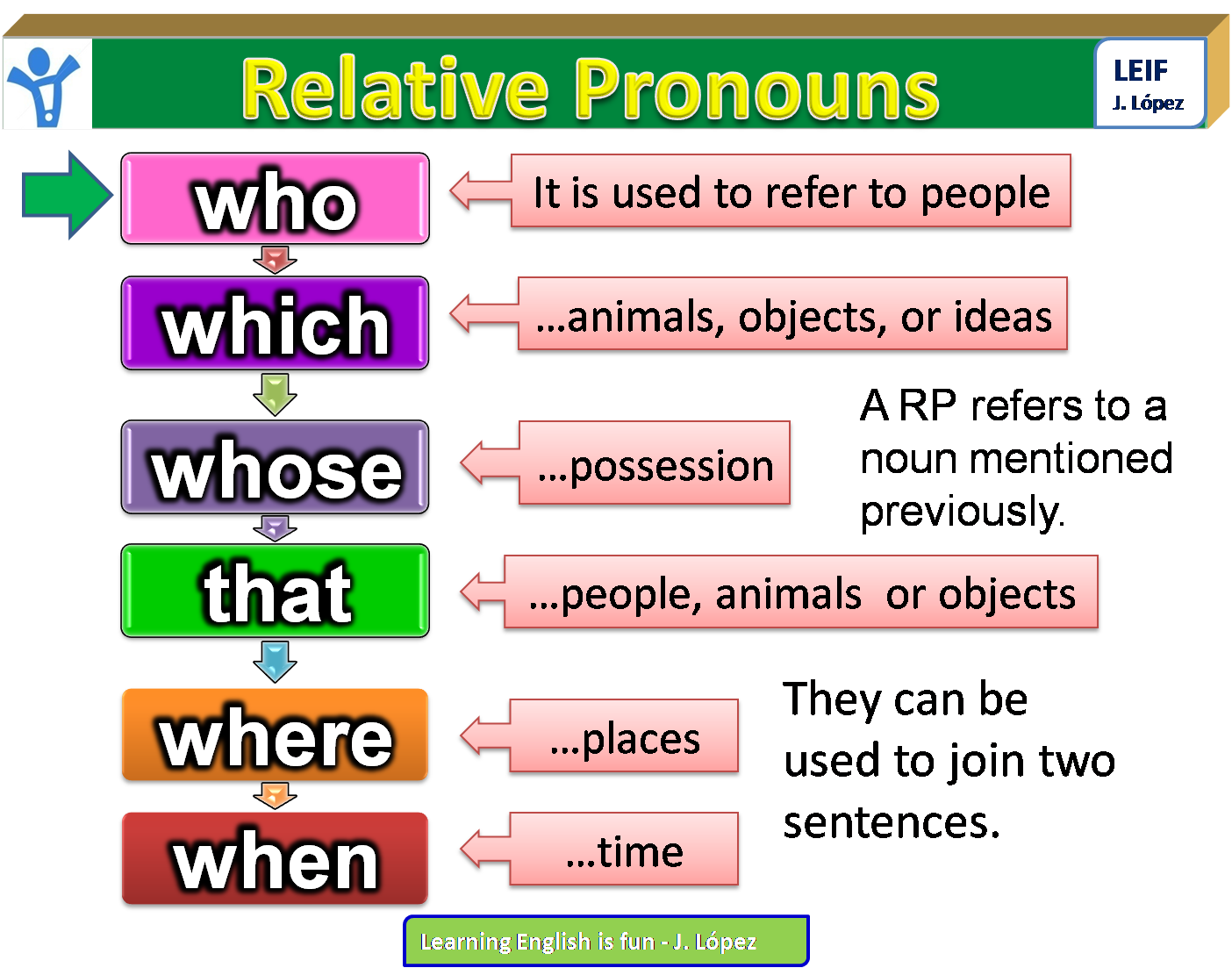RELATIVE CLAUSES
Defining Relative Clause
We use 'defining relative clauses' when we want to give more information about the person or thing we are talking about. Without that information, the sentence will be meaningless. Saying … “Send me the photo” is not the same as “Send me the photo which I took of you yesterday.”
Examples…
That's the woman who stole my coat.
That's the man that I spoke to last week.
Where is the apple that I told you not to eat?
This is the cat which I adopted.
The hospital where I was born is being knocked down.
Remember…
It contains essential information about the noun.
If we eliminate the subordinate clause, the sentence does not make sense.
We can substitute the relative pronouns 'which' and 'who' for 'that'.
The pronoun can be omitted if it refers to an object.
Non-defining Relative Clause
We use non-defining relative clauses when we want to join two sentences into one. For example…
The Queen will be 93 in April. Ella she loves skydiving.
The Queen, who loves skydiving, will be 93 in April.
More xamples…
These shoes, which I bought last week, are very uncomfortable.
My dog, which is called Pancake, is a vegetarian.
My sister, who lives in New York, is pregnant.
The Palace hotel, where many celebrities stay, is being closed down.
Remember…
Contains additional information about the noun.
We use commas to separate the sentence.
If we remove the subordinate clause, the sentence still makes sense.
Can't use 'that'
The pronoun cannot be omitted.
Other relative pronouns you should know:
whose
It refers only to people and we use it to show possession.
👉 from whom, whose, whose, whose, whose, of which, of which, of which, of which, of which.
Example
- The bakery whose owner died has now reopened.
- The man whose name is David is my brother-in-law.
- The author, whose book will be released tomorrow, is famous for running marathons.
whom
It also refers only to people. The difference with 'who', which acts as the subject, is that 'whom' refers to who receives the action of the verb.
👉 to whom, to which, to which, to which, to which.
Example
- Who is in charge of refunds? (quién)
- Whom should I contact about the refund? (a quién)
- Who is invited to the party? (quién)
- Whom will you invite to the party? (a quién)
Exercise






Comentarios
Publicar un comentario